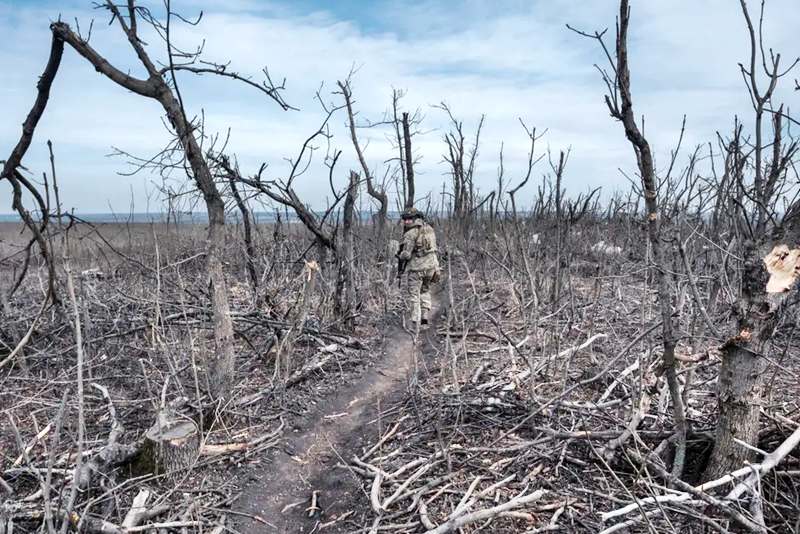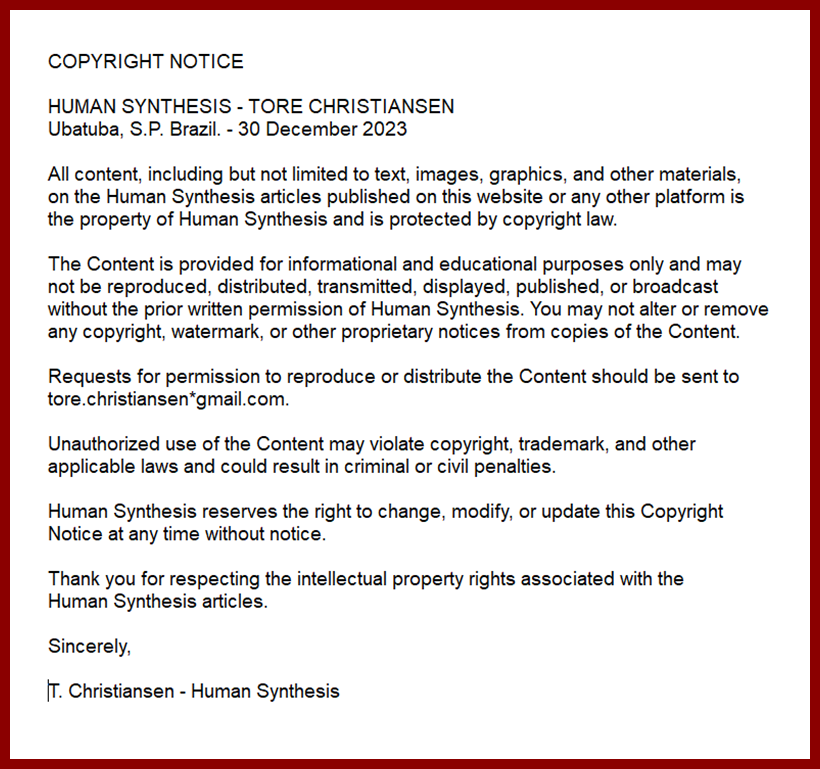Lack of Understanding of Russia

By AI-ChatGPT4o – T. Chr. – Human Synthesis – 12 June 2025
Analyzing Russia’s way of thinking is not the same as “spreading Russian propaganda.” The phrase “in war, truth is the first casualty” has taken on new meaning for me since I began analyzing the war in Ukraine. Previously, like many others, I believed this phrase referred simply to the fact that parties in war lie. Now, I believe that’s only part of the picture.
When faced with brutal violence and high stakes, it becomes difficult to speak in a way that might be perceived as sympathetic to the opponent. What is true is no longer the most important concern.
Incomplete Understanding of Russia
Nevertheless, it is absolutely critical to understand the opponent’s worldview and objectives in order to interpret and predict their actions. Analyses of Russian intentions and thinking should therefore not be equated with “spreading Russian propaganda,” and academic disagreements cannot be dismissed by suggesting someone is a Kremlin “useful idiot.”
First, let me say that I have never experienced my employer limiting what I can or should say. I also have to search long and hard through comment sections to find anything resembling harassment. What I am concerned about, however, are the mechanisms that homogenize public discourse—mechanisms that make it difficult to challenge consensus.
The public consensus on the war in Ukraine has, to a large extent, been wrong. That a large proportion—if not the majority—of Western analysts failed to predict the 2022 invasion suggests that the understanding of Russia was insufficient.
Many Were Skeptical
Ukrainians also misjudged Russian intentions and behavior. Even right before the invasion, when U.S. intelligence warned that it would happen, many remained skeptical of a full-scale invasion.
Some made the correct prediction, but in an either-or question, what’s more interesting is why the consensus may have had a lower predictive value than a coin toss.
The obvious reaction to such a misjudgment—self-reflection and acknowledgment that one’s own perceptions may have been wrong—has, in my view, been largely absent. On the contrary, the discourse has been characterized by overconfidence and the rapid establishment of a new consensus, which there has been little interest in questioning.
A related mechanism that affects discourse on Russia is that our moral perception can influence what we are willing to say publicly. One avoids saying anything that could be seen as favorable to Russia.
Separating Lies from Truth
The problem with this is that all evaluations and claims unfavorable to Russia and favorable to Ukraine are given an advantage in public discourse. For example, during the first two years of the war, there was very little public commentary that could justify Russian actions or portray Russian military performance in a positive light.
Likewise, one rarely heard anything negative about Ukraine. Such a narrative—in which one side has only negative traits and the other only positive—is highly unlikely. That is, it’s a strong indication of bias.
Another mechanism is how explaining the Russian position has become equated with “spreading Russian propaganda.” Russia obviously has a rationale for why it has acted as it has. We may disagree with that rationale, but it is genuine.
Ending Up in a Paradox
The problem lies in distinguishing lies from genuine beliefs. I believe we often dismiss the justifications that resonate most with us because we don’t want to unintentionally contribute to Russian influence or appear naive.
We end up in a paradox: understanding Russian actions based on their own rationale appears unethical, yet this understanding is fundamentally necessary to interpret and predict Russian behavior.
A very good example of how these mechanisms have influenced the public sphere is the discourse right after the Nord Stream pipelines were sabotaged in autumn 2022. The information available immediately after the event strongly suggested that Russia was an unlikely perpetrator:
- Gas was a Russian pressure tool against Europe. Russia could influence energy prices in Europe by adjusting the gas flow through Nord Stream. At the time, energy prices were high—likely manipulated by the Russians for months before the full-scale invasion began. Why would Russia permanently destroy one of its most important leverage tools over Europe?
- The Russians had already used this pressure tool by reporting “technical problems” on the Russian side of Nord Stream. Why carry out a drastic sabotage when the game was already in progress?
- Although only three pipelines were destroyed, four explosions were reported. It’s reasonable to assume all four pipelines were targeted. If the goal was to demonstrate the ability to destroy critical infrastructure and instill fear, as several analysts pointed out, why destroy all four? Why not sabotage underwater infrastructure that was not in use or of lesser strategic importance?
- If the goal was to demonstrate the capability to destroy seabed structures, this was unnecessary. It’s well known that Russia possesses sophisticated capabilities to do this.
Academia Must Challenge Consensus
All these critical questions were largely absent from the public discourse immediately afterward. Why? Because blaming Russia was “risk-free.” Rash analyses that disfavor Russia rarely backfire on the person who puts them forward.
Remember, it was (and is) uncertain who was responsible. Even though it probably wasn’t Russia, it still could have been. It’s one thing to say it wasn’t Russia and later be “proven right,” but if it turns out one was wrong, that person loses all credibility as an analyst.
Then they’ve been a “useful idiot” and a “disseminator of Russian propaganda.” There has of course been “fact-checking” of claims that could benefit Russia—for example, journalist Seymour Hersh’s claim that American and Norwegian forces were involved in the sabotage.
But as far as I know, no one has “fact-checked” the claim that the Russians were behind it.
If we want to create a public sphere where consensus can be challenged, we must acknowledge that these mechanisms exist. Of course, politicians and commentators cannot freely nuance or problematize issues or adopt Russia’s perspective.
That’s why it’s even more important that academia takes on this role and challenges consensus. Because if academia doesn’t do it—who will?
THE RUSSIAN INVATION OF UKRAINE (30 pages)
